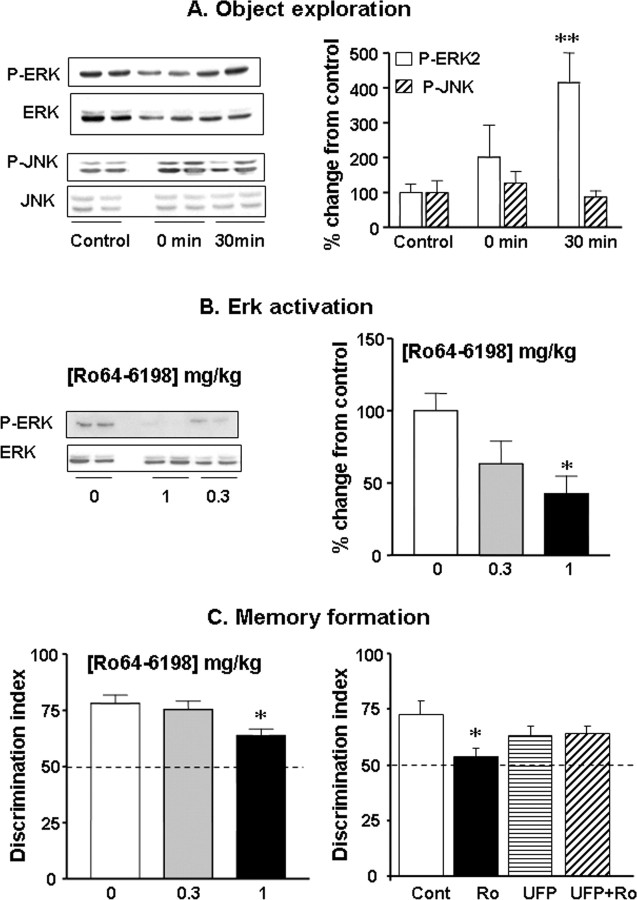Figure 2.
Activation of NOP receptors impairs long-term recognition memory formation through hippocampal ERK-dependent mechanisms. A, Hippocampal ERK and JNK phosphorylation after exploration of a novel object. Representative Western blots of phosphorylated and total forms of ERK and JNK in hippocampal samples collected either immediately (n = 4) or 30 min (n = 4) after object exploration (duplicates). Histograms represent the mean percentage of change from control ± SEM for pERK2 and pJNK normalized to total ERK2 and JNK for each time point. Control group (n = 10) corresponds to samples collected immediately (n = 5) or 30 min (n = 5) after exposure of mice to an empty open field arena. Data from both control groups were pooled as MAPK levels were comparable. B, Ro64-6198 reduces learning-induced hippocampal ERK activation. Western blots represent the phosphorylated and total forms of ERK2 (duplicates), 30 min after the familiarization trial. Histogram represents the mean percentage of change, from the vehicle-treated group ± SEM, of normalized pERK2 immunoreactivity (n = 4–6 per dose). C, Left, Ro64-6198 (0, 0.3, and 1 mg/kg; n = 9–10 per dose) administered before the familiarization trial impairs long-term recognition memory formation. Right, Intrahippocampal infusion of the NOP receptor antagonist UFP-101 reverses Ro64-6198-induced memory deficits. Ro64-6198 (1 mg/kg) and UFP-101 (5 nmol/side) were administered separately or concurrently (n = 7 per treatment) before the familiarization trial. The dashed line materializes chance level of 50%. *p < 0.05; **p < 0.01, significantly different from vehicle-treated group.

